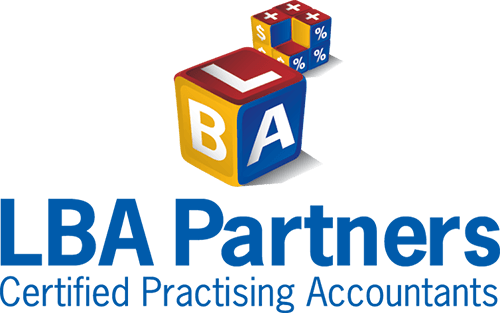Here's our latest newsletter, if you would like to follow up any of the information please contact Linda or Grahame
P r a c t i c e U p d a t e
March 2015
Small business company tax cut to go ahead
The Prime Minister announced that the government is currently working on a small business and jobs package, and that at the heart of this package was a small business company tax cut from 1 July 2015 which was "at least as big as the 1.5% already flagged".
Editor: In the same speech, he also indicated that his paid parental leave scheme has been shelved.
Deductibility of a 'working with children check'
Where the cost of a working with children check application is borne by an employee, the expense is deductible in the following situations:
- if the employee is an existing employee and is required to obtain a suitability notice in order to continue to derive assessable income in that position; or
- if a new employee has recently derived assessable income from being continuously employed within the field of child-related employment.
The cost of obtaining the initial suitability notice for a new employee who has not recently been continuously employed in the field of child-related employment is not deductible.
Editor: If you've paid for a working with children check and are wondering if it's deductible, contact us and we'll sort it out for you.
Time limits for family assistance payments
The ATO has reminded taxpayers who want to claim family assistance payments for the 2014 financial year that they must lodge a claim with the Department of Human Services (Centrelink) by 30 June 2015 to be eligible.
This deadline applies to taxpayers who intend to lodge a claim for:
- Family Tax Benefit;
- Child Care Benefit; and
- Single Income Family Supplement (SIFS).
These people must also lodge their 2014 Individual income tax returns by 30 June 2015 to receive their full Family Tax Benefit and SIFS entitlements (whether lump sum payments or payments that have been received throughout the year).
If they do not need to lodge an income tax return for the 2014 financial year, they must notify Centrelink by 30 June 2015.
These are separate requirements, so taxpayers can lodge their claim for family assistance lump sum payments even if their income tax returns have not yet been lodged or finalised.
Tax return deferrals past 30 June not taken into account by Centrelink
Any lodgment deferral granted by the ATO for lodgment of the 2014 income tax return does not affect or influence Centrelink's requirements that family assistance customers must lodge their returns by 30 June 2015.
ATO update regarding
the 'Director Penalty Regime'
Editor: The release of this ATO fact sheet follows a number of recent cases involving directors being largely unsuccessful in arguing why penalties under the director penalty regime should not apply to them.
The ATO has issued a new fact sheet aimed at helping directors (and those that are about to become a director) understand their obligations under the Director Penalty Regime in respect of unpaid and unreported Pay As You Go ('PAYG') and Superannuation Guarantee Charge ('SGC') amounts.
In particular:
- Directors will be personally liable for unpaid PAYG withholding or SGC amounts.
- Director penalties can apply even if an individual is no longer a director of a company, or is a newly-appointed director.
- The ATO is likely to issue a director penalty notice to collect company debts where the company hasn't engaged to resolve outstanding obligations.
- Payment is the only option to remit the penalty if the associated company liability was not reported within three months of the due date (e.g., if an SGC statement was required to be lodged by 28 August, but this had still not been done by 28 November).
- The ATO recommends that address details with the ATO and ASIC are kept up to date to ensure any time-sensitive action can be taken by impacted directors.
'Single Touch Payroll' on the horizon
Editor: The government announced on 28 December 2014 that they intended to simplify tax and superannuation reporting obligations through 'Single Touch Payroll'.
Under Single Touch Payroll, employers will be required to electronically report payroll and super information to the ATO when employees are paid, using Standard Business Reporting (SBR) enabled software.
In addition, Single Touch Payroll will streamline tax file number (TFN) declarations and Super Choice forms by providing a digital channel to simplify the process of bringing on new employees.
It may also cut red tape by notifying super funds and government agencies, such as the Department of Human Services (DHS), when an employee ceases employment.
It is intended that Single Touch Payroll will be available from July 2016, with all employers "operating in a Single Touch Payroll environment" by 1 July 2019 (though exemptions may apply in exceptional circumstances).
Note that, to meet their obligations under Single Touch Payroll, employers would be required to use, and if necessary acquire, appropriate payroll software.
The government is yet to make final decisions on the implementation of this proposal, and is currently seeking submissions regarding issues such as transition arrangements and how to minimise implementation and compliance costs.
Pension deeming rates to be lowered
The social security deeming rates* will be lowered from 20 March 2015 as follows:
- the 'lower deeming rate' will decrease from 2% to 1.75% for financial investments up to $48,000 for single pensioners and allowees, $79,600 for pensioner couples and $39,800 for each member of an allowee couple; and
- the 'upper deeming rate' will decrease from 3.5% to 3.25% for balances over these amounts.
(*) The deeming rules are part of the social security income test, and are used to assess income from financial investments for social security and Veterans' Affairs pension and allowances, such as the Age Pension, Disability Support Pension and Carer Payment, income support allowances and supplements such as the Parenting Payment and Newstart.
Deeming rates reflect the rates of return that people receiving income support payments are deemed to earn from their financial investments.
The deeming rates have been reduced as actual returns available to pensioners and other allowees have decreased.
However, if income support recipients actually earn more than these rates, the extra income is not assessed for the purposes of the social security income test.
Please Note: Many of the comments in this publication are general in nature and anyone intending to apply the information to practical circumstances should seek professional advice to independently verify their interpretation and the information's applicability to their particular circumstances.
Management Consulting
We have the know-how and experience to offer advice that helps you run your business more effectively.
Self-Managed Superannuation Funds
At LBA Partners we provide the professional advice you need to manage your own fund and greatly simplify the process for you.



